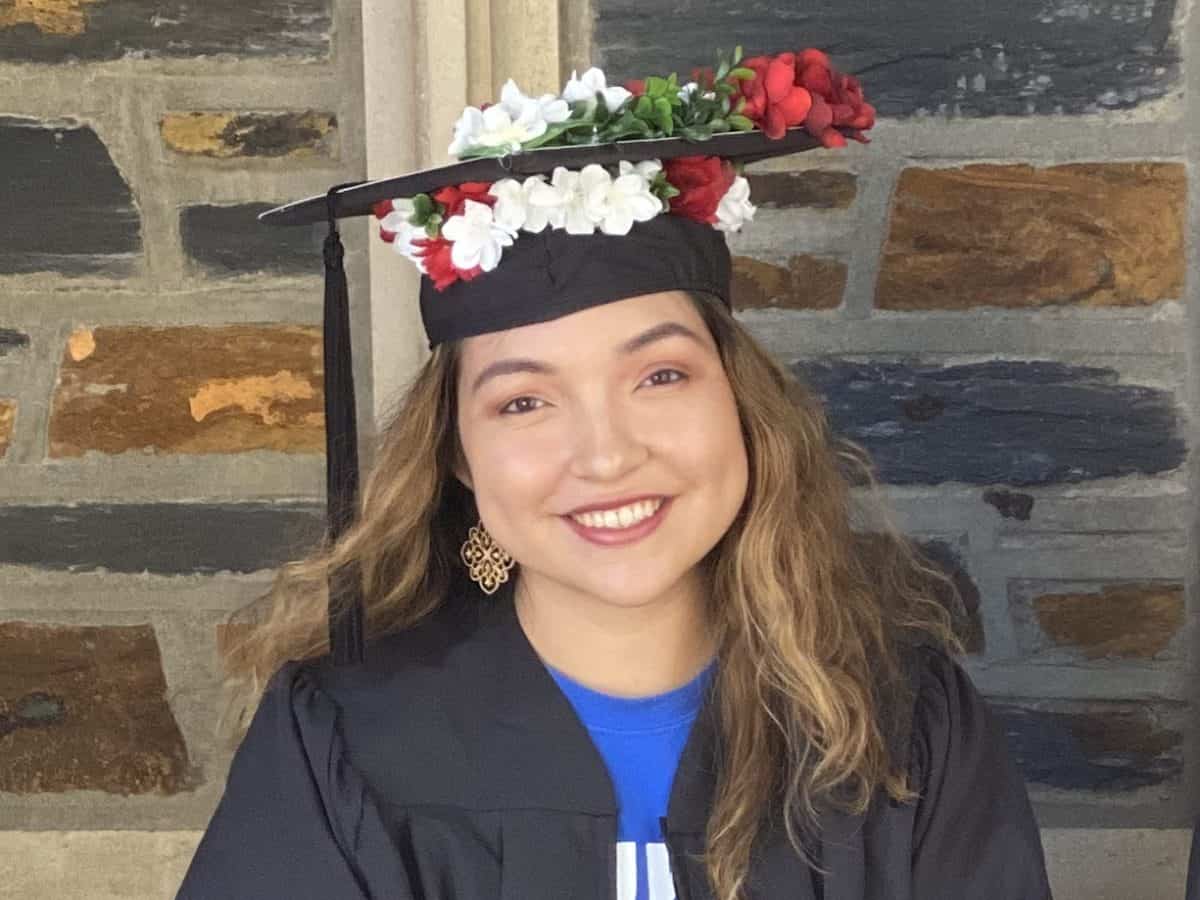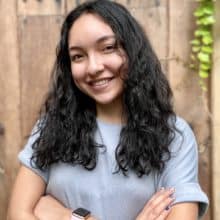
The following perspective is available below in both Spanish and English.
Mi nombre es Daisy Almonte y me gradué de las escuelas públicas rurales de Carolina del Norte. Al igual que otros estudiantes y padres en los sistemas escolares rurales, no me di cuenta de que nuestras escuelas carecían de tantos recursos hasta que aprendí sobre experiencias diferentes a las mías.
Por ejemplo, las clases AP ayudan a desarrollar habilidades académicas de nivel universitario, pero mi escuela secundaria no tenía muchas opciones AP. Las pocas clases de AP que pude tomar fueron en línea o mediante planes de último minuto.
Tomé inglés AP prácticamente en el pasillo, porque mi maestro de inglés fue lo suficientemente amable como para enseñar simultáneamente una clase de inglés de honor y un inglés AP de 4 personas al mismo tiempo. Nos sentamos en el pasillo y leímos libros / artículos que nos asignó mientras enseñaba a la otra clase dentro del aula. Luego salía, discutía el material con nosotros, nos asignaba otro pasaje y luego volvía a entrar. Los libros y ejercicios de escritura que estudiamos para esos exámenes AP me ayudaron a desarrollar las habilidades para tener éxito a nivel universitario. Sin la flexibilidad del Sr. Rinka para enseñar esa clase de pasillo en el lateral, no habría podido tomar esa clase porque el inglés AP no se ofrece en línea.
Como muchos estudiantes latinos en las zonas rurales de Carolina del Norte, vengo de una familia de inmigrantes donde el inglés no era mi primer idioma. Aunque mi familia siempre me dijo que la educación era la clave para la movilidad y el éxito, a menudo sentía que mi educación y mi familia eran dos mundos separados. Mis escuelas no tenían muchas lecciones o maestros con los que pudiera conectarme culturalmente, y eso afectó mi capacidad de verme triunfar profesionalmente. Sin embargo, cuando una Latina de College Advising Corps, un programa que manda personas que asesoren a los estudiantes en escuelas de bajos recursos, fue asignada a mi escuela secundaria durante mi último año, me vi reflejada en ella. La Sra. Álvarez me motivó y me retó a aplicar a la escuela de mis sueños, y hoy estoy feliz de decir que he completado mi licenciatura de la Universidad de Duke y que asistiré a Harvard Law en el otoño.
El Sr. Rinka y la Sra. Álvarez marcaron la diferencia en mi educación, gracias a ellos pude superar las barreras que enfrentan muchos estudiantes: la falta de clases AP y la falta de maestros y personal diverso. Pero mi historia no es la norma: creo que todos los estudiantes deberían tener acceso a materiales interesantes y desafiantes que los preparen para un pensamiento de nivel superior, y que todos los estudiantes deberían tener acceso a mentores y enseñanzas raciales y culturalmente relevantes. Pido a los legisladores de Carolina del Norte que aborden estas disparidades en nuestros sistemas escolares, para que cada estudiante en Carolina del Norte pueda tener las herramientas para tener éxito.
My name is Daisy Almonte, and I graduated from North Carolina rural public schools. Similar to other students and parents in rural school systems, I did not realize that our schools lacked so many resources until I made my way through higher education.
For instance, AP classes help develop college-level academic skills, but my high school did not have solid AP options. The few AP classes I managed to take were online or through last-minute plans.
I took AP English practically in the hallway, because my English teacher was nice enough to simultaneously teach an honors English class and a 4-person AP English at the same time. We would sit in the hallway and read books/ articles he would assign to us while he taught the other class inside the classroom. He would then step out, discuss the material with us, assign us another passage, then go back inside. The books and writing exercises we studied for those AP exams helped me develop the skills to succeed at the college level. Without Mr. Rinka’s flexibility in teaching that hallway class on the side, I wouldn’t have been able to take that class because AP English is not offered online.
Like many Latino students in rural North Carolina, I come from an immigrant family where English was not my first language. Although my family always told me that education was the key to mobility and success, it often felt as if my schooling and my family were two separate worlds. My schools didn’t have many lessons or teachers that I could connect with culturally, and it impacted my ability to see myself succeeding professionally. However, when a Latina College Advising Corps member was assigned to my high school during my senior year, I saw myself reflected in her. Ms. Alvarez motivated and challenged me to apply to my dream school, and today I am happy to say that I have completed my bachelors from Duke University and will be attending Harvard Law in the fall.
Mr. Rinka and Ms. Alvarez made all the difference in my schooling, thanks to them I was able to overcome barriers faced by many students — lack of AP classes and lack of diverse teachers and staff. But my story is not the norm. I believe that every student should have access to engaging and challenging materials that prepare them for higher-level thinking, and that every student should have access to racial and culturally relevant teaching and mentors.
I’m calling on North Carolina legislators to address these disparities in our school systems, so that EVERY CHILD in North Carolina can have the tools to succeed.
Recommended reading

